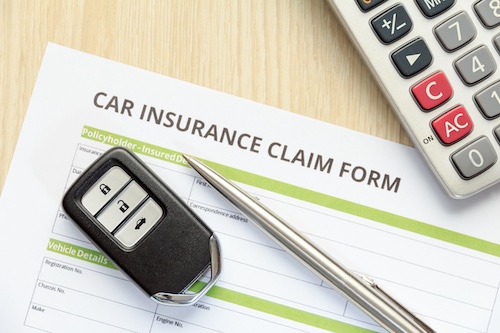Georgia Car Accident Laws: Key Rules Every Driver Should Know
We are Atlanta Metro Law, a dedicated legal team serving the Metro Atlanta area. We focus on car accident cases and handle every case on a contingency basis with a flat 25 percent fee, so you pay nothing unless we win for you. Our team is available 24/7, and you will always have direct access to one of our attorneys or a paralegal to answer your questions and keep you informed throughout your case.
Georgia car accident laws control how fault is determined, how insurance works, and how injured people can recover money for their losses. Georgia follows an at-fault system, meaning the driver who causes the crash must pay for damages. The state also uses the modified comparative negligence rule, sets minimum liability insurance requirements, and enforces strict statute of limitations deadlines. Understanding these rules helps drivers protect their rights and improve their chances of a fair recovery after a car accident.
In this blog, you will learn how Georgia car accident laws affect fault, insurance, deadlines, and compensation, and why working with an experienced Atlanta car accident lawyer can help protect your rights and improve your chances of a fair recovery.
Georgia Is an “At-Fault” State
In Georgia, the driver who causes a car accident is legally responsible for paying for the damages. This rule is known as the at-fault system, and it shapes how car accident claims are handled.
What At-Fault Means in Georgia
Georgia law follows an at-fault system under O.C.G.A. § 51-1-6. This means the person who causes the accident must pay for the other party’s medical expenses, property damage, and other losses. The injured driver can file a claim with the at-fault driver’s insurance or take legal action to seek compensation.
How Fault Is Determined
Fault is established by reviewing all available evidence. This includes the police report from the Georgia State Patrol or local police, statements from witnesses, photographs of the vehicles involved, and any physical signs such as skid marks. Insurance adjusters also use these details to decide who is at fault.
Why Proving Fault Matters
Proving fault is critical because it decides who pays for medical bills, lost income, and property damage. Without clear proof, the insurance company may reduce or deny payment. An experienced car accident attorney can help gather evidence, present it effectively, and protect your right to seek compensation under Georgia law.
Modified Comparative Negligence Rule
Georgia uses the modified comparative negligence rule to decide how much compensation an injured person can recover after a car accident. This rule applies when more than one person shares fault for the crash.
How the Rule Works
Under O.C.G.A. § 51-12-33, you can recover damages if you are less than 50 percent at fault. Your compensation is reduced by your percentage of fault. If you are 50 percent or more at fault, you cannot recover any damages.
Example of Comparative Negligence
If a jury finds you 20 percent at fault for a car crash and your damages total $100,000, you can recover $80,000. The reduction reflects your share of the blame. This approach ensures that fault is shared fairly between the parties involved.
Why It Matters in Car Accident Claims
The insurance company may try to assign you a higher percentage of fault to reduce what they pay. Strong evidence such as police reports, witness statements, and photographs of the vehicles involved can prevent this. An experienced car accident attorney can help prove fault, protect your rights, and maximize your ability to seek compensation under Georgia law.
Georgia Liability Insurance Minimums
Georgia law sets minimum amounts of liability insurance that every driver must carry. These limits are designed to cover damages if you cause a car accident.
Required Coverage Amounts
Under O.C.G.A. § 33-7-11, drivers in Georgia must carry at least:
- $25,000 for bodily injury per person
- $50,000 for bodily injury per accident
- $25,000 for property damage per accident
These amounts are the legal minimums, but they may not be enough to cover serious medical expenses or property damage.
Why Minimum Coverage May Not Be Enough
A serious car crash can result in damages that exceed the required limits. If the costs are higher than the at-fault driver’s insurance coverage, the injured party may have to pay the difference themselves. This is why many drivers purchase underinsured motorist coverage for added protection.
Role in Car Accident Claims
Insurance limits directly affect how much money is available for medical bills, lost wages, and other losses. Knowing the other driver’s coverage helps an experienced car accident attorney determine the best strategy to seek compensation. In many cases, identifying all available insurance sources is key to a successful recovery.
Statute of Limitations: The Clock Is Ticking
In Georgia, the statute of limitations sets strict deadlines for filing a car accident claim. Missing these deadlines can prevent you from recovering any compensation.
Time Limit for Personal Injury Claims
Under O.C.G.A. § 9-3-33, you have two years from the date of the car accident to file a lawsuit for bodily injury. This includes claims for medical expenses, lost wages, and non-economic damages such as pain and suffering.
Time Limit for Property Damage Claims
For property damage claims, the deadline is four years from the date of the accident. This covers damage to your vehicle and any personal property inside it.
Exceptions to the Rule
Certain situations can extend the filing deadline. For example, if the injured person is a minor or if the claim involves a wrongful death, the time period may be calculated differently. However, these exceptions are limited and should not be relied on without legal advice.
Why Acting Quickly Matters
Evidence such as police reports, witness statements, and photographs of the vehicles involved can be lost over time. Acting promptly allows an experienced car accident attorney to build a stronger case and protect your right to seek compensation under Georgia law.
Recoverable Damages in Georgia Car Accident Claims
Victims of a Georgia car accident may be able to recover several types of damages depending on the nature and severity of their losses. These damages fall into two main categories.
Economic Damages
Economic damages cover measurable financial losses. This includes medical expenses such as emergency treatment, surgery, physical therapy, and ongoing care. They also include lost wages and lost income if the injury prevents you from working, as well as property damage to your vehicle and other personal items. Keeping detailed records of bills and receipts helps prove these losses.
Non-Economic Damages
Non-economic damages cover losses that do not have a direct dollar amount. This includes pain and suffering, emotional distress, loss of enjoyment of life, and loss of companionship. These damages recognize the physical and emotional impact of a car crash.
Wrongful Death Damages
If a victim’s death results from a car accident, surviving family members may file a wrongful death claim. Damages can include funeral costs, loss of the deceased’s income, and loss of companionship. Georgia law gives close relatives the right to bring these claims within the statute of limitations.
Importance of Evidence
Strong evidence is essential to prove both economic and non-economic damages. Medical records, employment documentation, photographs, and the police report all help support a claim. An experienced car accident attorney can gather this evidence and present it effectively to help you seek compensation under Georgia law.
Consult With an Experienced Atlanta Car Accident Attorney ASAP!
If you have been injured in a Georgia car accident, do not wait to take action. The sooner you get help, the stronger your case can be. Reach out to our team at Atlanta Metro Law today for a free consultation. Our experienced Atlanta car accident lawyers will review the details of your case, explain your rights under Georgia car accident laws, and guide you through every step of the legal process.
Contact us at 864-894-2045 for a free case review today!







